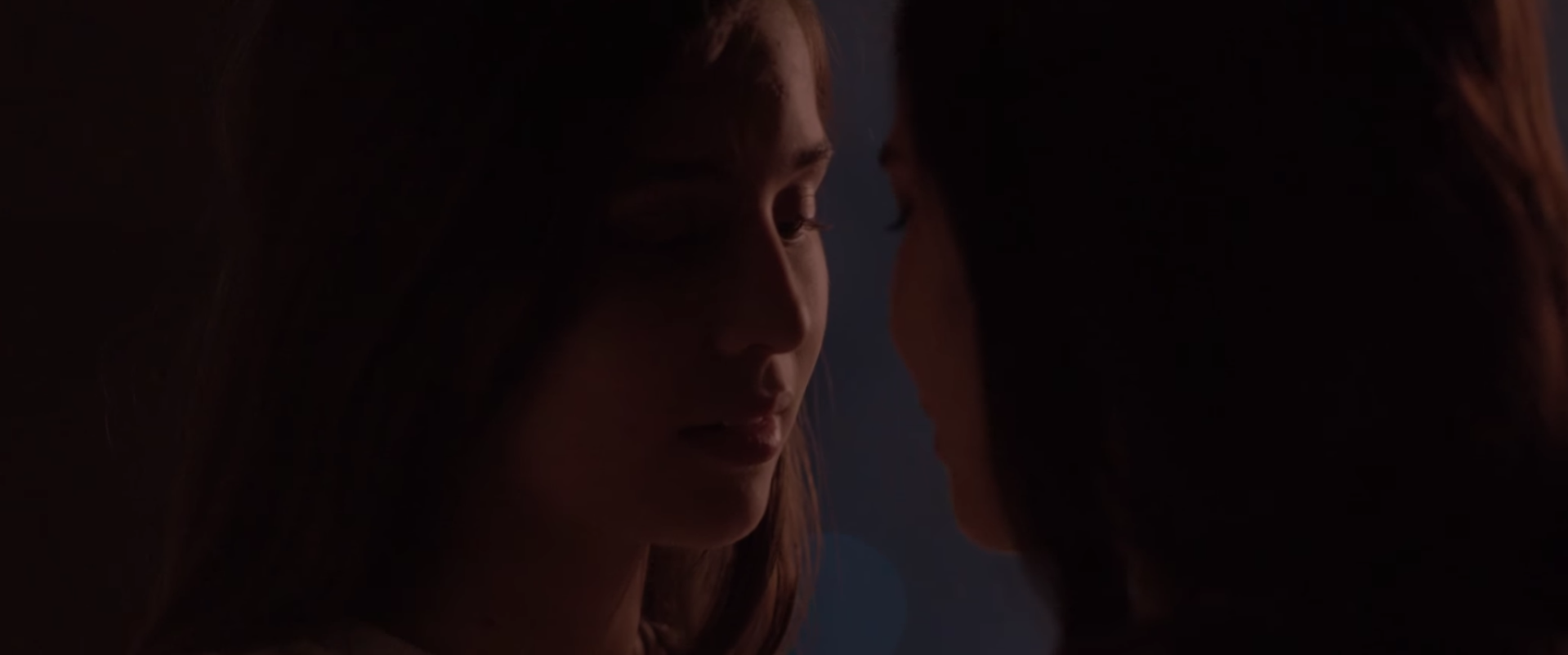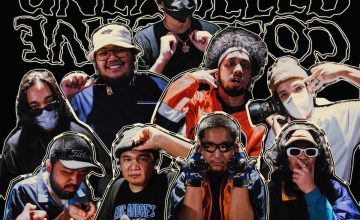Sam Lee’s Baka Bukas, starring Louise de los Reyes and Scout December 2015-January 2016 cover girl Jasmine Curtis-Smith, has been out nationwide for almost a week now. There’s something to be said about a story like this being part of mainstream local cinema, and for all intents and purposes the fact that a movie like this got a mainstream release is one of a number of bold steps forward for LGBTs.
While it’s getting a lot of love from a good part of the audience, late last night a big debate sprung up about the movie and the kind of story it’s telling—or, rather, the kind of story it says it’s telling.
The debate began here, when @NonaTweets2U started ranting about Baka Bukas and how the LGBT was couched safely inside a middle-class context (which doesn’t even begin to cover the entire spectrum of experiences):
that Bull happened because the film views gayness thru the PH petty b lens, which is pretty much misappropriated USA queer culture
— nona (@NonaTweets2U) March 5, 2017
and that lens basically ignores the PH’s actual current social context, and is only applicable in the very small petibsphere
— nona (@NonaTweets2U) March 5, 2017
if you try to enforce that shit on ‘lower class’ gays and lesbians? it won’t fucking work
— nona (@NonaTweets2U) March 5, 2017
it was just so wholly unrelatable to a large percentage of filipinos that i was surprised a film like this got released to mainstream cinema
— nona (@NonaTweets2U) March 5, 2017
it’s just so fucking inside the Petibsphere that it’s painful. the cinematography and color design was nice but the story? No.
— nona (@NonaTweets2U) March 5, 2017
A lot of reactions go on from there. 2 Cool 2 Be 4gotten director Petersen Vargas defended the movie Sam Lee chose to make, saying that everyone had the right to tell their own stories, so long as it sincerely came from them.
as long as you remain true & sincere, have your intentions intact, then that’s okay, too! as long as your heart is in the right place. https://t.co/T5mSy3iuoJ
— Petersen 4-Ever (@petersenvargas) March 5, 2017
what a cliché, but omg, it is the only thing that I think matters in a work: honesty. honesty is the best policy. honesty is the way to go.
— Petersen 4-Ever (@petersenvargas) March 5, 2017
if you are compelled to tell the story of your heartbreak in a backdrop you fully understand & you get the fucking chance to do it, why not?
— Petersen 4-Ever (@petersenvargas) March 5, 2017
But many others contend that although artists have the right to express their own stories and experiences in art, missing the opportunity to make it inclusive, or to at least raise awareness of the cultural surroundings one way or another makes the work of art slightly pointless and tonedeaf.
It’s an LGBT film, and you can’t just tell a story without presenting other existing issues. It’s a story na kulang sa social commentary.
— nika (@methlabforbooty) March 6, 2017
And if ur audience doesn’t feel the weight of the struggles in ur story, it’s a useless story. You communicated nothing. Nagkwento ka lang.
— nika (@methlabforbooty) March 6, 2017
Being peti-b is not an excuse to waste opportunities to reach out to someone or to eschew social issues for aesthetics instead.
— dani @ komikon (@bedmosslife) March 5, 2017
@IamAlmostDan @Watdahel_Marcel pushing the envelope is in not creating content that’s palatable to ppl who are unbothered by lgbt struggles
— ᴄᴀɴᴅʏ ʟᴏᴡ sʟɪᴅᴇʀ (@truerpoems) March 5, 2017
After much intense debate, the consensus (or something close to it) seems to be that while the story is valid, maybe Baka Bukas shouldn’t have been marketed as representative of all lesbians—because that demographic is much too nuanced to be generalized—and that there is a real need to make art that doesn’t just rest on its laurels. And that these criticisms about representation leveled at it are valid, too.
It’s not fair to demand one narrative to represent all narratives, but neither is it fair to dismiss demand for more inclusive narratives?
— Apa (@apaagbayani) March 6, 2017
: Weaponize your art. Or don’t. Mag-art for art’s sake ka. But when the status quo begs to be defied, your art will be met with criticism.
— LANY MERCADO (@Watdahel_Marcel) March 6, 2017
: And you can’t really blame your audience if they demand more. It’s the audience’s inherent duty to do so because they deserve better.
— LANY MERCADO (@Watdahel_Marcel) March 6, 2017
The whole issue is tricky; the issue of true representation is valid, but it also doesn’t make the author or filmmaker’s own experiences invalid. In the end, I think we’re going to have to agree with the fact that it’s okay to make art however you want it so long as you deal with the criticism gracefully—and also as long as that criticism is given respectfully. I also agree that even though experiences are valid, the way the artist expresses them isn’t immune to any valid criticism. And I agree that nobody should exaggerate and generalize in the process of marketing the movie, especially if the ones in charge of doing so aren’t that informed.
Most of all, I think the biggest problem really is what local studios and distributors are willing to push to the mainstream. It’s entirely possible that this movie was candy-coated as it is in order to ensure consideration for a wider release, and while it could’ve done better addressing real concerns and bringing awareness to more pressing struggles, the sad reality is that nobody’s sure a grittier film would have been as successful, or even cleared at all. At the very least, Baka Bukas could have helped open new doors for better movies despite its issues. One can hope that maybe everyone will get the movie they want and need tomorrow.

























Comments